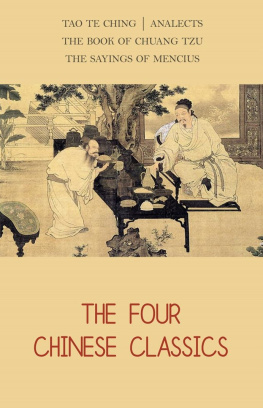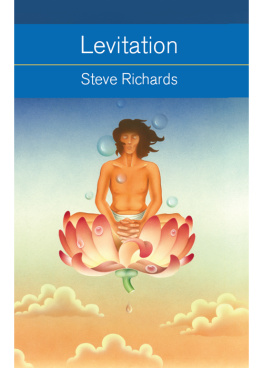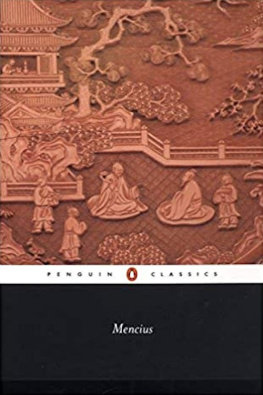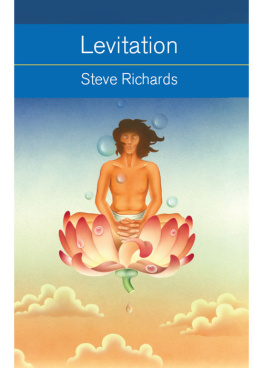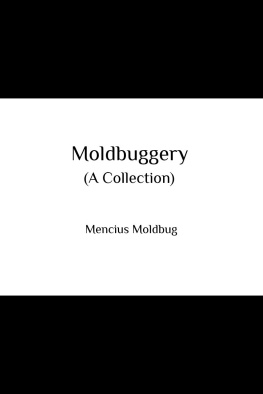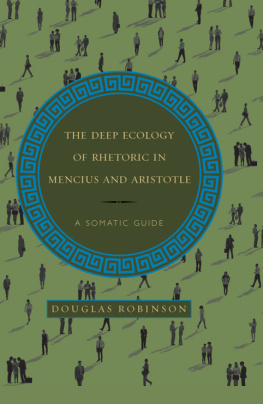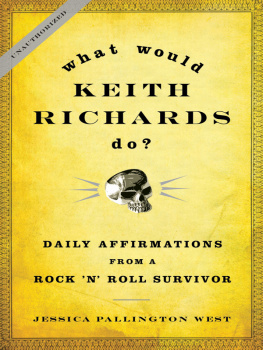Mencius on the Mind
Experiments in Multiple Definition
BY
I. A. RICHARDS
Litt.D., Fellow of Magdalene College, Cambridge
Author of Principles of Literary Criticism, etc.
CURZON
First published in 1932
by Kegan Paul, Trench, Trubner
This edition published by Curzon Press
St Johns Studios, Church Road, Richmond
Surrey, TW9 2QA
1997 Curzon Press
British Library Cataloguing in Publication Data
A catalogue record for this book is available from the British Library
ISBN 0700704345
To my Collaborators
L. T. HWANG
LUCIUS PORTER
A. C. LI
This were a wonder thing, quod Troilus,
Thou coudest never in love thy-selven wisse ;
How devel maystow bringen me to blisse ?
Ye, Troilus, now herke, quod Pandare,
Though I be nyce; it happe ofte so,
That oon that exces doth ful yvele fare
By good counseyl can kepe his freend ther-fro.
I have my-self eek seyn a blind man go
Ther-as he fel that coude loke wyde
A fool may eek a wys man ofte gyde.
A whetston is no kewing instrument,
And yet it maketh sharpe kerving-tolis.
And ther thow woost that I have ought miswent
Eschewe thou that, for swiche thing to thee scole is ;
Thus ofte wyse men ben war by folis.
If thou do so, thy wit is wel biwared ;
By his contrarie is every thing declared.
Troilus and Criseyde, Bk. I.
CONTENTS
Mencius, 372289 B.C ., a descendant of one of the noble families of Lu, is second only to Confucius in reputation and authority as a moralist and philosopher. The record of his teachings and his conversations with princes who sought his counsel, or disciples who gathered around him for instruction, forms the fourth of the Four Books; and upon the principles they inculcate a great portion of the orthodoxy of China in matters relating to ethics and social order is directly founded. Few details of his personal history have been preserved, but a tradition records that having been left an orphan in childhood by the death of his father, he was educated with tender but wise solicitude by his mother. In later years he studied, it is said, under disciples of the renowned Tzu Ssu (Kung chi), the grandson of Confucius, becoming thus a direct inheritor of the Confucian doctrines. The record of his teachings was first made the subject of profound study and elaborate commentary in the second century A.D . by the scholar Chao Chi, who gave him the honorific epithet Sage Second, and this has since remained as the philosophers distinctive title. In A.D . 1083 the Emperor Sung Chen Tsung conferred upon him the retrospective honour of elevation to the rank of Duke of Cheng ( ), and he was classed among the most honoured of the disciples of Confucius. His reputation gained fresh lustre from the disquisitions of the schoolmen of this period, and in A.D . 1330 an imperial decree invested him with the additional title of

(Ya Sheng Kung). The Sages tomb is still reverently guarded near the city of Tsou Hsien in Shantung.
Foreword
T HE pages which follow are the outcome of a three months discussion with a group of friends at Peking. To Professor L. T. Hwang, Dr. Lucius Porter, and Mr. Li an-che of Yenching University I owe the literal translation in the Appendix and any understanding of it at which I have arrived. It is, however, only fair to insist in as prominent a place as possible that my friends and teachers in Peking are in no way responsible for any absurdities which appear in my commentary. I have allowed myself to be tempted by many conjectures arising since I left their company and control and when these conjectures are foolish and such as an elementary scholarship in Chinese would prevent, the explanation is in my ignorance. I have taken the risk of writing in spite of this, chiefly to call attention to the need for another work on the same subject by some competent person; and partly too because some of the problems I raise are not so likely to occur with the same sharpness to a trained and hardened scholar in Chinese. If these problems are, as I believe, important, the detail of my commentary may be a tissue of misconceptions and yet the trouble I share with my readers will be justified. For my aim is less to elucidate Menciuswhich would be a task for another lifetimethan to bring into greater prominence an extremely puzzling set of linguistic situations. As I hope to show, these linguistic situations have an interest that spreads beyond the field of English-Chinese translations. A theory which could handle them would have direct bearing upon the whole range of our language purposes from the practice of the most elementary education up to the most abstruse enterprises of comparative criticism and philosophy. But before that theory can come the problems must be teased out and stated. And for this attempt a text as remote in method and content as possible from our own contemporary modes seemed the most hopeful as a subject for experiment.
My aim has been, first, to call the attention of those with a taste for analysis to a fascinating field for explorationChinese modes of meaning perhaps, for the future of humanity as a whole, the field which most needs, at this juncture, a concentration of enlightened talent upon it. Secondly, to discuss, more explicitly than is usual, the difficulties that beset every translator and every student of any literature that is far removed in character from his own. Thirdly, to apply the considerations which this discussion brings out towards a clarification of our contemporary methods of controlling our meanings. And, fourthly, to present a Chinese view of psychology which seems relevant to the vexed question of science and value.
There are those both in China and in the West who ask What, after all, is there in these old Chinese thinkers that has any relevance to the modern world ? Even Dr. Hu Shih, who first, I think, pointed out the interest of this psychological material in Mencius, has been reported as saying that Chinese Philosophy has nothing to contribute to modern thought, and that it has merely a historical interest. Probably he meant that the results of ancient Chinese thinking, considered apart from its conditions, cannot be integrated into modern thinking. It would be absurd to suppose him to mean that study of ancient ways of thinking could in no way benefit modern thought. Such an opinion would, it seems to me, imply a complete misconception of the main use of philosophy, which is, I suggest, in giving us the opportunity of considering modes of meaning carried to their revealing limits. In much academic study we fall easily into too simple an attitude to philosophers. We tend to look to them for positively useful conclusions or positively useful methods. We forget that there are philosophers who are great and permanent objects of regard because of the mistakes they made. So the value of comparative studies does not lie necessarily in the views we may obtain as to what Mencius, for example, taught, so much as in the information about thinking which we may extract by comparison between him and others.
With regard to the contemporary Chinese intellectual situation, it is permissible, I believe, to be more specific. Chinese thought is now taking over and absorbing the whole developed Western logical technique; and it will do so more perfectly and in a more balanced way and make fewer avoidable mistakes, if it does not turn its back upon ancient Chinese thinkingrelegating it to a position of historical interest. It will do better, I believe, to make as conscious and deliberate a comparison as possible between the purposes (and resultant limitations) of ancient thinking and the purposes (and resultant limitations) of Western logic.


 (Ya Sheng Kung). The Sages tomb is still reverently guarded near the city of Tsou Hsien in Shantung.
(Ya Sheng Kung). The Sages tomb is still reverently guarded near the city of Tsou Hsien in Shantung.
